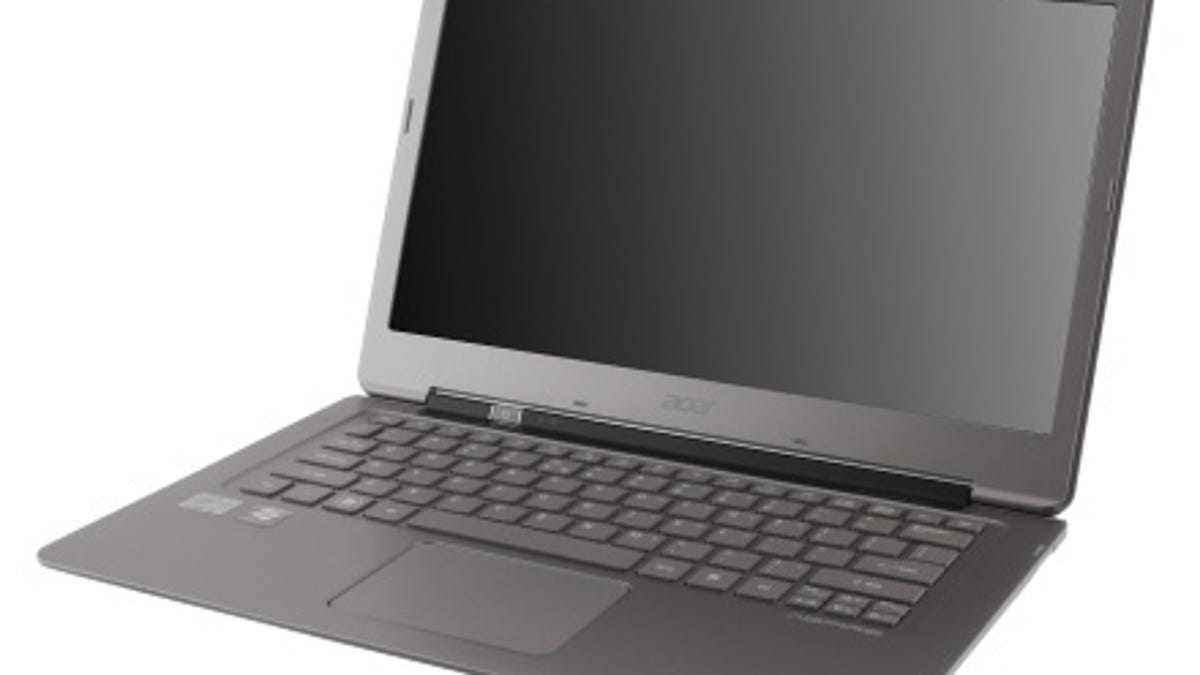Ultrabooks having trouble balancing price, competitiveness
Acer Global President Jianren Weng says the price of the company's ultrabooks could come down to $499 next year, but even at $799, Acer can't turn a profit on the devices.

Acer is one of the many PC vendors doubling down on ultrabooks. But that effort has so far made it difficult for the company to profit off those devices.
Speaking yesterday to The Verge, Acer's Christoph Pohlmann, a member of the company's laptop division, said that even at its current price of $799, the Acer Aspire S3 ultrabook is only breaking even with each sale. Any chance that Acer could price ultrabooks any lower at this point seems awfully slim.
But Acer Global President Jianren Weng seems to see things differently. According to The Verge, Weng said yesterday at CeBIT that ultrabooks will need to drop to $499 in 2013 in order to compete against devices like Apple's iPad, which cut into sales.
At first glance, ultrabooks look like every other notebook on store shelves, complete with nice displays, full keyboards, and a touchpad. However, in order to cram all the battery-saving and processing power into the small devices, vendors need to pay up to $940 in total costs, according to a recent report. That pushes ultrabook pricing up, and makes them far more expensive than standard laptops featuring similar specs, and than tablets.
Back in December, Digitimes reported that Intel, which developed the ultrabook spec, was handing out $100 subsidies to vendors to ease the cost of developing the notebooks. In a follow-up statement to CNET, Intel said it was not, in fact, offering subsidies for ultrabooks.
So, what's the solution for the price crunch in the ultrabook space? According to the aforementioned CNET source, there isn't much of one: "you've got a down market on the eve of a new operating system (Windows 8) at a price point that's fairly robust (high)." In other words, things aren't looking up for ultrabook demand or vendors reducing expenses anytime soon.

